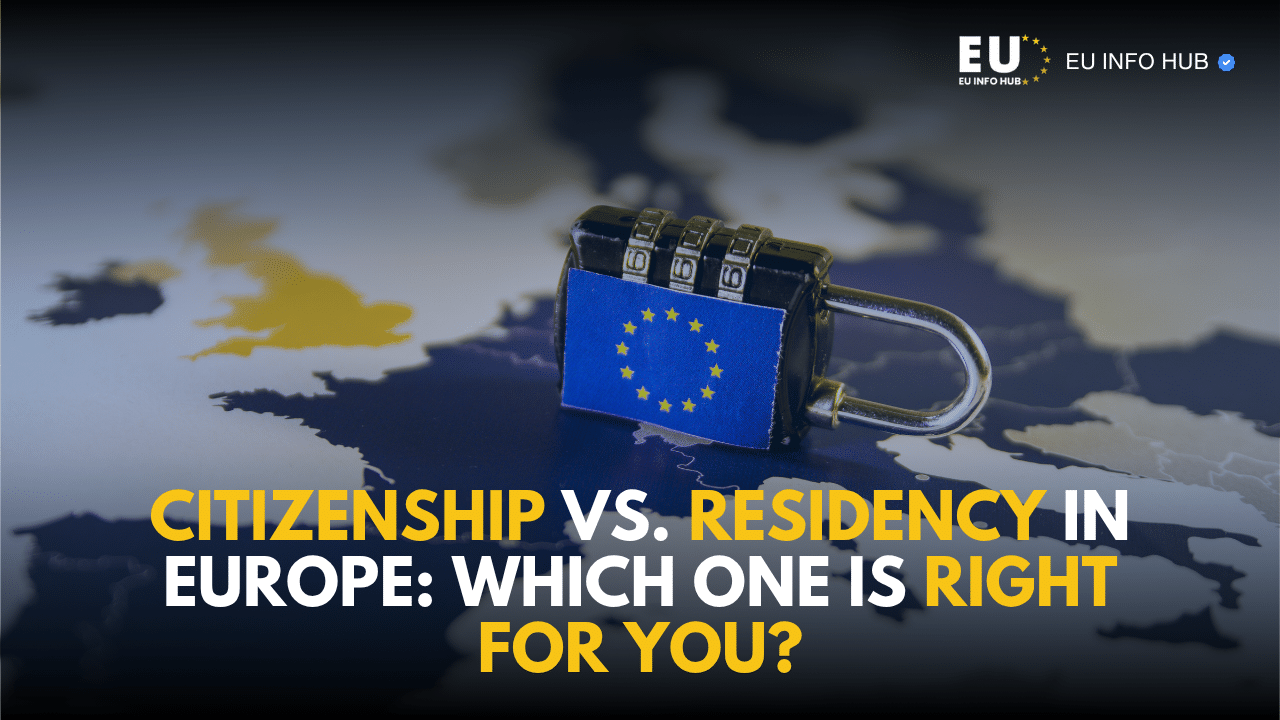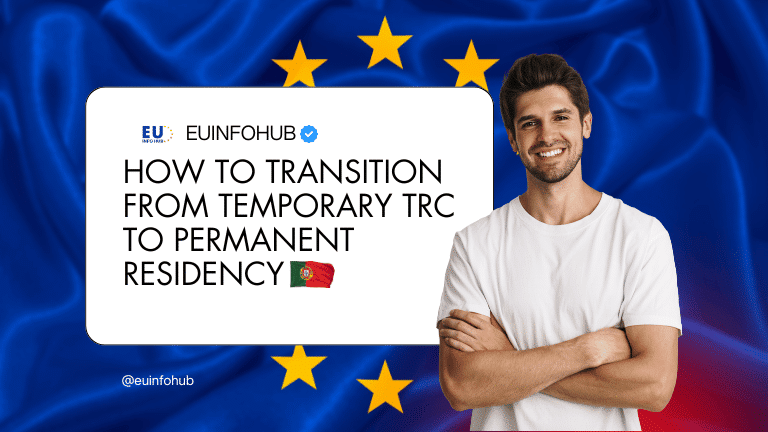Are you wondering about the differences between citizenship and permanent residency? Not sure which option suits you best? Whether you’re relocating for work, studying, or simply seeking a new adventure, understanding your legal status is the crucial first step to feeling like home in a new country.
Many individuals mix them up or think they mean the same thing. Regarding the rights, obligations, and long-term implications tied to each of them, citizenship is markedly distinct from permanent residency.
Let’s break the distinction and see everything that requires consideration before you fill either status application.
What Is the Difference Between Citizenship and Permanent Residency?
Permanent residency means you have the legal right to live and work in a country for an extended period, but it doesn’t make you a citizen. You still hold citizenship in your home country, while also having the legal permission to reside in another country. In contrast, citizenship grants you full rights and status within that particular country.
As a full member, it gives you additional rights: voting, being able to apply for a passport, and enhanced protection under that country’s laws. Except for rare cases, you can lose permanent residency more easily than citizenship.
Key Differences of Citizenship vs. Residency
Here is a quick overview of citizenship vs. permanent residency so you can make a better choice;
| Feature | Permanent Residency | Citizenship |
| Right to vote | No | Yes |
| Passport eligibility | No | Yes |
| Deportation risk | Possible | Very unlikely |
| Duration of stay | Indefinite (with renewals) | Lifetime |
| Access to full benefits | Partial | Full |
| Dual nationality | Not always allowed | Often Allowed |
Benefits of Permanent Residency
If you’re not ready to fully commit to another country, permanent residency is often the right choice. It grants a stable legal status with obligations fewer than those of full citizenship. Here are the reasons, why it is so much in demand:
- Live, work, and study without needing visas.
- Buy property and open a business in most countries.
- Include spouse and children through family reunification rights.
- Access local education and healthcare for your children.
- Legal protection under labor and residency laws.
- Renewable status and a common pathway to citizenship in the EU after 5 years.
But keep in mind:
- Residency permits may need renewal every 5–10 years.
- Long absences might cancel your residency.
- You can’t vote or access some public benefits.
While planning, make sure you know exactly what to do before going to Europe so you can save your time, effort, and money.
How Does Citizenship Beneficial?
This comes with powerful advantages, especially across Europe such as:
- You gain the right to vote and run for office.
- You can apply for a national passport for easier travel.
- Full legal protection and eligibility for consular services.
- Access to jobs in the public sector and national scholarships.
- Freedom to live, work, and access various accommodation options across the EU.
Another great thing about European citizenship is mobility. This means that every citizen of a European country has the right to live and work in any other EU country without any special permits.
Citizenship status is usually for lifetime unless revoked for fraud or voluntarily renounced. It confers a sense of identity and legal security far above basic residence.
How to Qualify for Each
Deciding between citizenship vs. permanent residency is also about meeting eligibility. Actually, the steps differ and are greatly varied from country to country in Europe.
Permanent Residency
To qualify for permanent residency, most European countries require you to:
- Hold a valid long-term visa (e.g., work, study, family reunification)
- Live in the country continuously for a set number of years (typically 5)
- Show proof of steady income or legal employment
- Pass a language or integration test, depending on the country
- Maintain clean legal conduct during your stay
Countries like Germany and France require integration courses, while others, like Portugal, offer more relaxed rules.
Citizenship
Citizenship usually demands:
- First hold permanent residency
- Have lived in the country for several more years (ranging from 5 to 10)
- Demonstrate a clean legal history
- Pass a citizenship or language exam to show integration
- Renounce your original nationality if required by the host country
Some countries offer fast-tracked paths for spouses of nationals or long-term EU residents. Be sure to check individual requirements, as citizenship and permanent residency laws can vary greatly between nations like Spain, Sweden, or the Netherlands.
Common Misconceptions
Most people assume that permanent residency will turn ideally into citizenship, which is not always the case. In some cases, applying for citizenship separately or meeting additional requirements is necessary.
Some people even think that citizenship and permanent residence can be earned by buying property or investing in a country. However, some countries do not meet this so-called golden visa criteria and instead require other specific things.
Can You Lose Your Status?
Yes, both statuses can be lost under certain conditions.
- Permanent residency may be taken away if you engage in a serious offense or remain outside the country for an extended period.
- Citizenship is more difficult to lose, yet it can occur on voluntary giving up.
It is highly important to know about the rules and regulations for both.
Citizenship vs. Residency: Choosing the Right Path
Your choice between citizenship and permanent residency in Europe stands as a critical decision. The choice extends beyond legal aspects because it influences your daily life and future protection together. The path you select will be determined by your life objectives together with your plans for the future and level of commitment to establishing permanent ties in your new country.
In Europe, a few countries are more open for dual citizenship, while others might demand you to give up your original nationality. The same goes with the availability of public services, legal rights and benefits in the long term. That’s why it is essential to think deeply about what best applies to your lifestyle.
Ask yourself the questions below to clarify which path is right for you:
Are You Interested in Voting or Participating in Community Activities?
Voting and running for office is limited to citizens only. If participating in political decisions is important to you, citizenship is crucial.
Are You Okay With Possibly Giving Up Your Original Nationality?
Some countries don’t allow dual citizenship. Consider whether you’re emotionally and legally ready to let go of your original passport.
Do You Need Full Access to Benefits and Protections?
Citizenship gives a plethora of legal and social rights, from government benefits to travel protections. If those are some things that matter to you, aim for citizenship.
If your answer to most of these questions is yes, then citizenship is likely the right option for you. But if in doubt, or in case you prefer more flexibility, permanent residency is a very strong and stable option.
Wrap Up
To make any important move, it is vital to distinguish citizenship vs. permanent residency. They both have equitable advantages on their own. The appropriate one for you depends on your goals and future aspirations. Always check the local laws and timelines concerning the country.
Are you planning to file your citizenship and permanent residency application in Europe? With EU Info Hub, gain the benefit of expert advice, information, and individualized assistance. The team will help you with the process and save you from making costly mistakes.
FAQs
1. Can I apply directly for citizenship without permanent residency?
Usually not. Most European countries will require you to have permanent residency for citizenship application except for cases of birth, marriage, or ancestry.
2. Is a long-term visa equal to being a permanent resident?
No. Long-term visas are temporary, subject to conditions, while permanent residence provides for long-term, stable residence rights for individuals to live and work in the country.
3. Do all countries allow dual citizenship?
No, it varies from one country to another. Some EU countries allow it; others do not.
4. How long does it take to get citizenship in Europe?
It depends. Some allow citizenship after 5 years of permanent residence, while others may take 8-10 years or more depending on your status and background.















